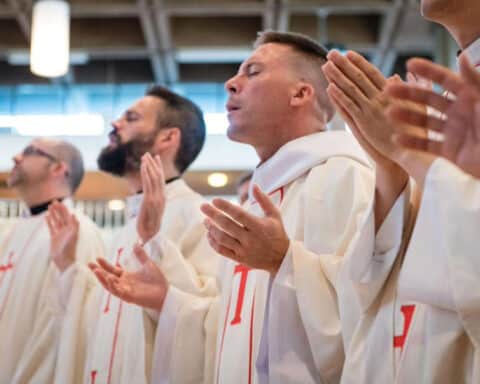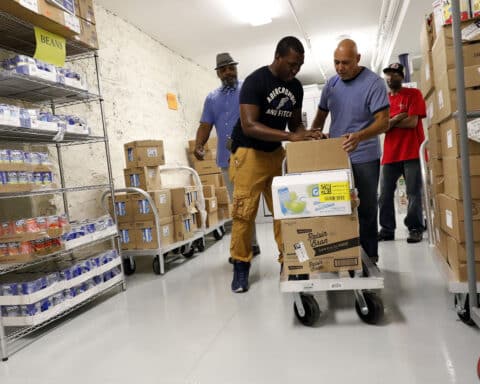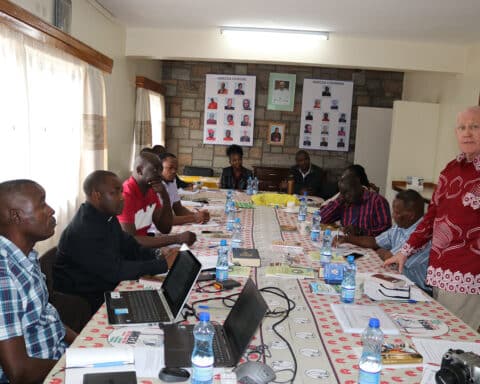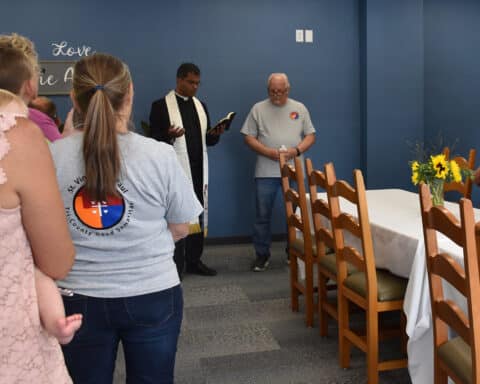Somehow, on the horizon already is July Fourth, traditionally a touchstone for families and local communities to celebrate the ideas and ideals on which our nation was founded. Our culture dictates that there are usually barbecues, fireworks shows and, at least for a day, some feelings of national, if not political, unity. It is a day built for community.
But no matter how you shake it, the Fourth will look different this year. As we strive to continue abiding by social distancing recommendations to keep the curve of the coronavirus pandemic flattened, events will be canceled or have their structure changed, crowds will be limited and gatherings spent 6 feet apart. Our experience of community, in the local and in national sense, will be different.
Add to that the convergence of the global pandemic with international protests demanding racial justice, and we are reminded both how important community is, and just how fragile.
In the past months, we have had to reinvent community in many ways. Families have become their own islands of community. With schools closed, parents became elementary and high school teachers. With day cares shuttered, they worked and juggled babies and chased toddlers. Grandparents watched grandkids grow on FaceTime, and families waved to loved ones through nursing home windows. Many people have lost their jobs and find themselves with no community at all.
Work-based communities moved online, exercise classes went virtual, digital grocery shopping became the norm, and book clubs are now on Zoom. We have grown accustomed to community through a screen.
Our church communities also look different. Though public Masses are once again taking place in most parts of the country, they are, out of necessity, more isolated. Fewer people are present, singing is limited, and conversation afterward is quick and impersonal. Parish events, out of necessity, have been scaled down or canceled. Initiatives are on hold, and money is tight.
Despite the changes in our current reality, we must be reminded that our faith teaches us that we are made for community. From the earliest points of human history, the Lord God said: “It is not good for the man to be alone. I will make a helper suited to him” (Gn 2:18), and thus the first human community was born. In the Gospels, Jesus taught us the greatest commandment: “love one another as I love you. No one has greater love than this, to lay down one’s life for one’s friends” (Jn 15:12-13). St. Paul, in his letter to the Romans, taught that “we, though many, are one body in Christ” (12:5).
In an interview with La Stampa in mid-March, Pope Francis said that the coronavirus pandemic will remind us “once and for all, that humanity is a single community.”
He added that it will teach us that “universal kinship” is important and critical. “It will no longer be ‘them.’ It will be ‘us.’ Because we can only come out of this situation together,” he said.
How marvelous indeed would it be if we could make it to the other side of the pandemic with a better understanding of our individual responsibilities when it comes to community? To care for one another, to serve one another, to protect one another? To be creative with one another, to be open to different views and opinions, and to be willing to learn from one another?
How marvelous would it be if we took renewed interest in our parishes? If the few hands on deck suddenly turned into the many? How wonderful would it be if we took a more intentional interest in serving the less fortunate, or in participating in small groups or retreats, or in supporting the parish financially?
What would it look like if we crossed generations, the young caring for the elderly, and the elderly teaching the young?
What would it look like if we stood up as one body in Christ for truth, for justice and for peace?
The disruption of life over the past few months doesn’t have to come without silver linings. As we press forward into what is an uncertain future for many, let us embrace what Christ and the Church teach us about being a truly Christian community, and let’s get to work making it happen.
Our Sunday Visitor Editorial Board: Gretchen R. Crowe, Scott P. Richert, Scott Warden, York Young





